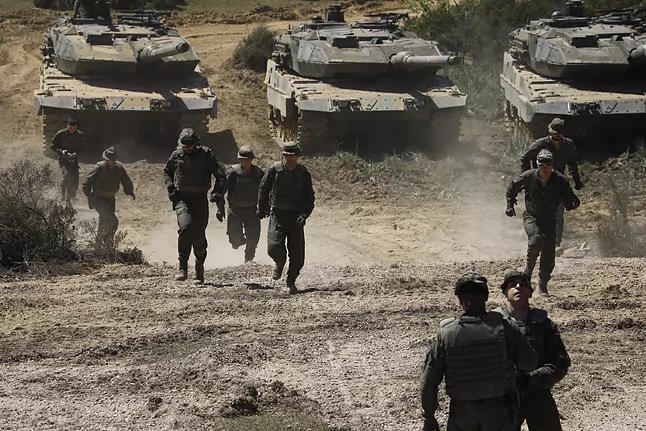Brussels aims to create a military Schengen that will be fully operational by 2027, which "will allow the rapid, secure, and coordinated movement of troops and military equipment across Europe." The initiative, presented on Wednesday, includes specific measures and contemplates the removal of barriers and rules.
For example: it will establish a "clear process for cross-border movements within a maximum of three working days." Additionally, there will be "a single authorization procedure for the 27 Member States," and efforts will be made to "simplify customs procedures and military transport regulations."
The EU will also "modernize key military mobility corridors with dual-use standards." To achieve this, the new military mobility package includes up to "500 strategic projects and specific investments to eliminate bottlenecks along" these "priority corridors."
"The importance of the package lies in harmonizing and streamlining military transport regulations. We simplify the lives of military personnel by transitioning from 27 national permit procedures to a single Union procedure defined by the regulation," summarized Defense Commissioner Andrius Kubilius during a meeting with a group of European media outlets, including EL MUNDO.
To illustrate the current mobility challenges, the Lithuanian commissioner pointed out some glaring cases. "When France tried to move troops to Romania, it took months. And some countries require a 45-day prior notification when someone wants to cross their territory with military equipment. We could make a long list of cases. Other countries do not allow tanks to use the roads because they weigh too much according to their regulations. And that is what we are changing here," he explained.
Brussels' measure will include a solidarity pool where countries make their capabilities available to the EU as a whole. "To address the shortage of availability of railway wagons, platforms, medical wagons, or similar, we propose creating a solidarity pool, aimed at sharing key military mobility capacities," Kubilius added.
The ultimate goal is, of course, to ensure that the EU's military response is as rapid as possible. For example, in the event of an attack by Russia on the eastern flank, other countries can easily and swiftly move their troops, tanks, and military equipment. Kaja Kallas, the EU's High Representative for Foreign Affairs, exemplified this during the presentation of the new package.
"The attack on Polish railway lines on Monday is evidence of the existing risk. Russian attacks are increasing, and critical infrastructures require more protection. We must ensure that our armed forces are in the right place at the right time. The faster our armed forces move, the greater deterrent capacity we will have. It is necessary to move troops in days," emphasized the European diplomatic chief.
